For a party so united and ready to take total control in Washington, Republicans sure have a lot of divisions.
In the House of Representatives, there are the Freedom Caucus hardliners versus the pragmatic, moderate conservatives. In the Senate, you’ve got the institutionalists versus the disruptors. And across the Trump administration, there will be ideologues on various sides of questions from military intervention to fiscal priorities to the engines of economic prosperity.
In a demonstration of how the holidays can bring out the worst festering conflicts within a family, the flap in MAGA world last week over immigration exposed just one of these splits. To sum up: Trump announced on December 22 a series of White House appointments, including the India-born tech venture capitalist Sriram Krishnan as a technology adviser. Krishnan’s vocal support for expediting more high-skilled immigration to the U.S. kicked a hornet’s nest in certain corners of the populist right. MAGA activist Laura Loomer called his appointment “troubling” and said increasing high-skilled immigration was “not America First policy.”
What ensued was a contentious back-and-forth on social media between the hardcore immigration restrictionists and the relatively new-to-the-party tech bros who defended specialty work visas like the H-1B program. That debate was signal-boosted on December 25 when Elon Musk tweeted that in America there is a “permanent shortage of excellent engineering talent” in a way that’s hurting Silicon Valley’s growth potential. (Merry Christmas from the world’s richest man!) Musk’s fellow head of the forthcoming Department of Government Efficiency, Vivek Ramaswamy, chimed in the next day with a jeremiad about how the current culture in America does not produce the best engineers, forcing tech companies to recruit foreign-born or first-generation immigrants.
The argument over H-1B visas and others continued online (with Musk even claiming he will “go to war” over the issue) and even spilled over onto cable news. At one point, MAGA media impresario Steve Bannon called Musk a “toddler” and harangued him on his online show War Room.
It took Donald Trump himself to intervene in the squabble. The president-elect, who near the beginning of the COVID-19 pandemic in 2020 had signed an executive order temporarily suspending specialty visa holders from entering the United States, stepped in to defend high-skilled immigration.
“I’ve always liked the visas, I have always been in favor of the visas. That’s why we have them,” Trump told the New York Post Saturday. “I have many H-1B visas on my properties. I’ve been a believer in H-1B. I have used it many times. It’s a great program.” And at the Wall Street Journal editorial page, there was much rejoicing.
Trump’s call for MAGA peace reflects a desire by the incoming president to hold together the “unity” he and his campaign touted in the weeks and months before Election Day. But in a broad coalition that includes everyone from the former Democrat Robert F. Kennedy Jr. to the traditionalist Republican poster boy and new Senate Majority Leader John Thune, the cracks are already showing.
There are the potential roadblocks in the Senate to some of Trump’s most controversial nominees. There was the pre-Christmas spending resolution battle that had fiscal conservatives in the Republican conference allying with Musk to torpedo a compromise crafted in part by GOP House Speaker Mike Johnson—only to have Trump himself lumber in with a new proposal to extend the debt ceiling early, which went nowhere. And there is the shaky effort to put together a foreign policy team in the administration that pushes hawks and non-interventionists to play nice together.
The most immediate next fight will happen this Friday, when the House will vote on a speaker. With such a narrow margin for the new Republican majority, Johnson can survive only two defections if he hopes to win another term. Sensing grumbling from the most strident conservatives, Trump has once again jumped into the fray.
“Speaker Mike Johnson is a good, hard working, religious man. He will do the right thing, and we will continue to WIN. Mike has my Complete & Total Endorsement,” he posted on Truth Social Monday.
Trump’s lengthy endorsement is not only an attempt to cut off any dissension in the House GOP ranks (though it does not seem to have squelched it all). It also revealed how anxious the president-elect is that his self-proclaimed “massive victory” could be squandered by disunity. “LETS NOT BLOW THIS GREAT OPPORTUNITY WHICH WE HAVE BEEN GIVEN,” he urged in that post.
But unity in American politics is a fickle thing, despite (or in some cases because of) attempts to enforce it. And the circumstances of Trump’s second presidency make it a unique situation to navigate. He is coming back to the White House already a lame duck, with a party aligned behind him but as unsure as ever of what comes after the Trump era. There is ample evidence that his threats to primary disloyal Republicans are hit-or-miss. And the jockeying for who will succeed him as the GOP’s standard bearer in 2028 begins as soon as Trump takes the oath of office on the Capitol steps next month.
What will this look like over the next year, two years, four years? There is that narrow majority in the House, yes, but also the unpredictable Republican majority in the Senate, both of which will require creative rethinking of how to shepherd Trump’s legislative priorities through Capitol Hill.
It may take just one Republican congressman with a good friend to become king or queen of the House, dictating to Speaker Johnson (or whomever wins the gavel) how things will operate. But depending on the issue, the pair of members micturating in the House’s punchbowl may not always come from the far right of the conference. And what about a larger coalition, say 20 to 40 members from closer to the center of the ideological spectrum, making demands? There can be power at the margins of such small majorities, as outgoing Sens. Joe Manchin and Krysten Sinema can attest.
And while Trump appears to have sided with Musk and his new Silicon Valley friends on the high-skilled immigration front, he has proven to be an ad-hoc president. And so long as warring factions within his tribe sense that the head honcho’s mind could be changed, the fracturing will continue. Buckle up.
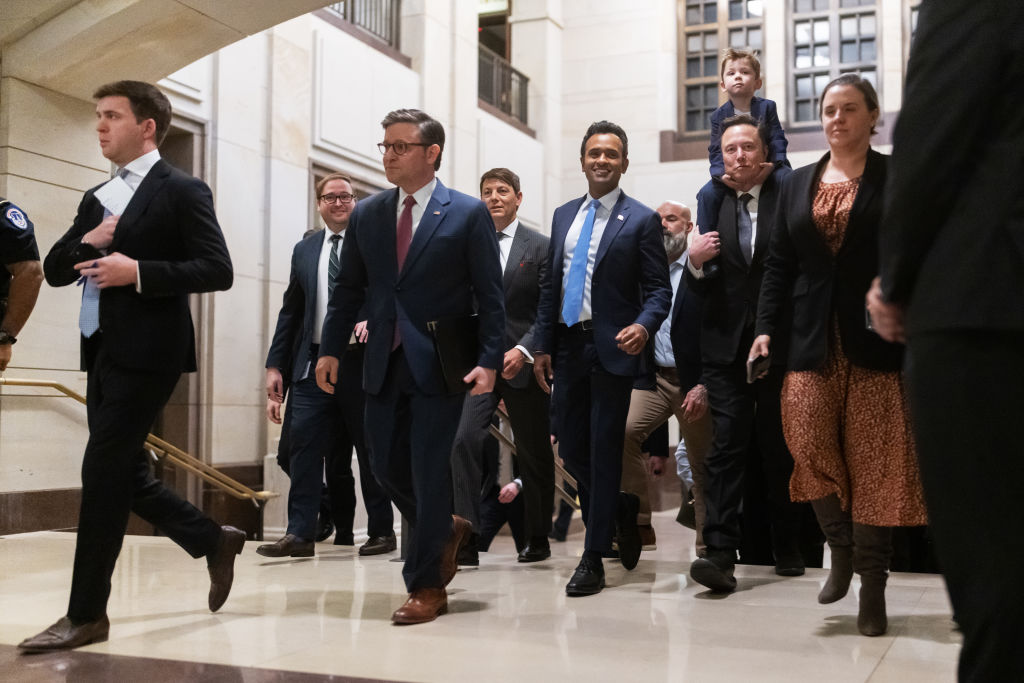

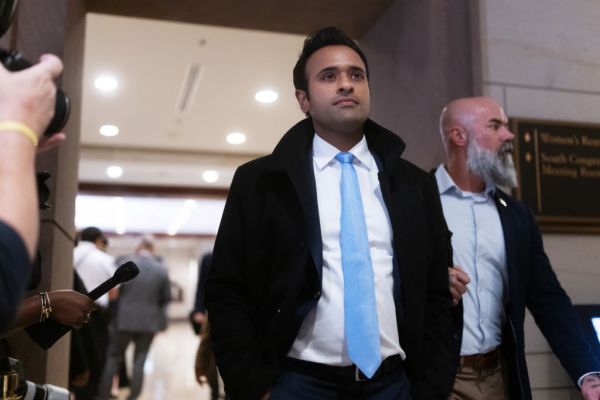
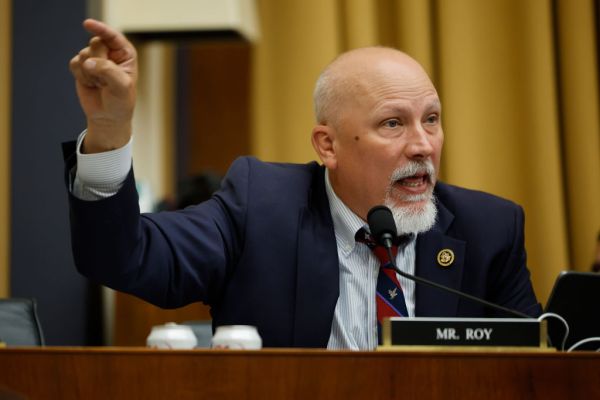
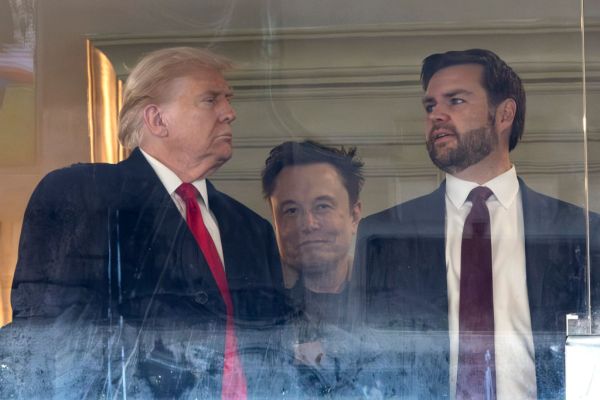

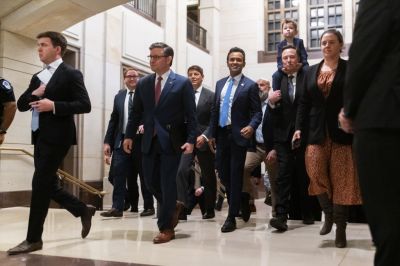
Please note that we at The Dispatch hold ourselves, our work, and our commenters to a higher standard than other places on the internet. We welcome comments that foster genuine debate or discussion—including comments critical of us or our work—but responses that include ad hominem attacks on fellow Dispatch members or are intended to stoke fear and anger may be moderated.
With your membership, you only have the ability to comment on The Morning Dispatch articles. Consider upgrading to join the conversation everywhere.